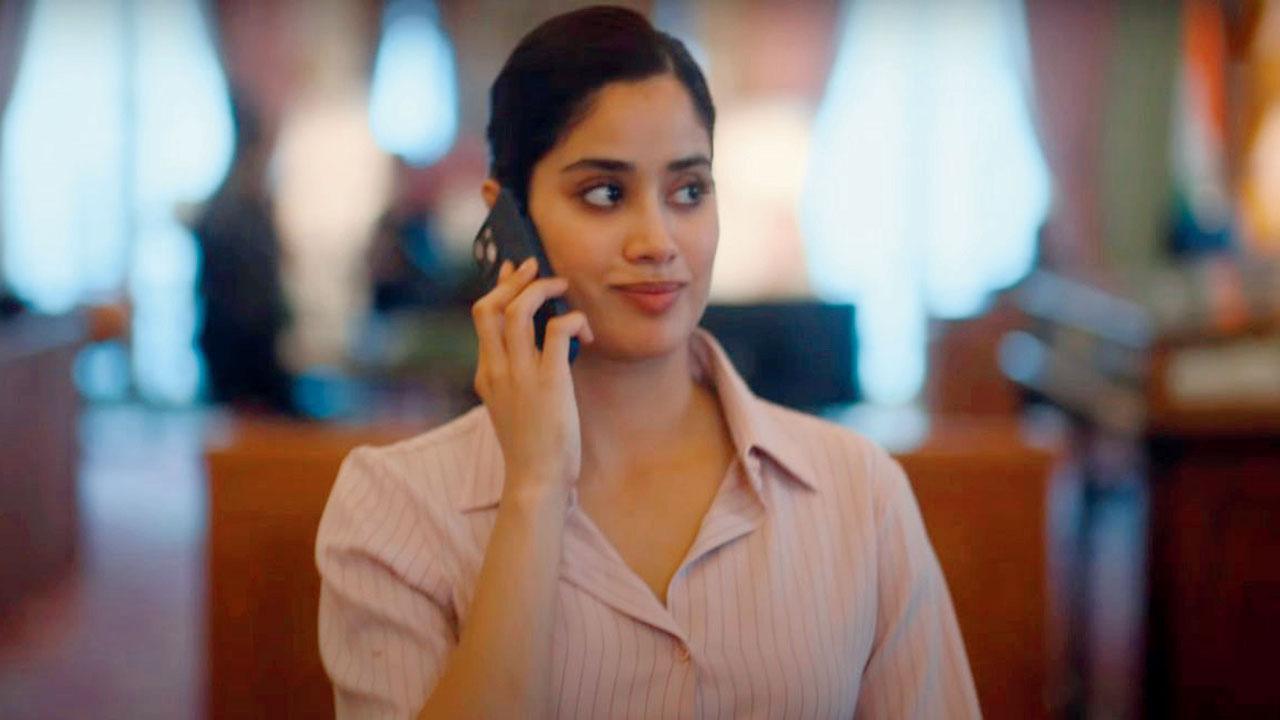
In the high-stakes world of film production, tensions often run high, especially as the release date draws near. However, some directors, like Sudhanshu Saria, thrive during this critical period. With his latest film, *Ulajh*, just over a week away from its premiere, Saria is basking in anticipation and excitement. “Right now, I feel the same joy that I felt when I first read the draft that Parveez Sheikh wrote. *Ulajh* belongs to a genre I have not worked in before. The setting of Indian Foreign Services (IFS) was so compelling. Bravery and patriotism come in all shapes and sizes; that was the idea of the story,” he shares with a smile.
*Ulajh* centers on a young IFS officer who finds herself caught up in a labyrinthine conspiracy, playing a high-stakes game of intrigue and betrayal. The film boasts a stellar cast, including Gulshan Devaiah, Roshan Mathew, Adil Hussain, and Rajesh Tailang, but it is Janhvi Kapoor who takes the spotlight. Saria, a National Award-winning director, makes it a point to feature strong women protagonists in his works, reinforcing his commitment to creating a more balanced representation in the film industry. “I like the idea of a balanced world when it comes to gender politics. In *Ulajh* too, this is her story, and yet little is affected by her gender. She is a hero who happens to be a woman,” Saria affirms.
The inspiration for casting Janhvi Kapoor was initially sparked by scriptwriter Parveez Sheikh, but Saria was resolute in taking this vision forward. He believes that action movies, traditionally seen as a domain for muscular male heroes, should break free from such gendered constraints. “The traditional notion is that action is about muscles, so it is considered a male category. But spy films are about smarts. Movies like these expand the idea that there cannot be a gender lens in genres. All genres can belong to all actors.”
For Saria, Kapoor’s relentless pursuit of the role was a testament to her passion and dedication. “Janhvi got wind of this script existing. She came after us, and there was no getting away from her. I was excited that I found a passionate partner. When I met her, I loved that she was willing to be a part of my process; nothing scared her. We did extensive workshops to make sure the part and the film fit her like a glove,” he adds.
Interestingly, *Ulajh* also sets a precedent by prominently featuring the names of all its writers on the promotional poster, a decision Saria credits to the film’s studio, Junglee Studios. “It’s wonderful to see Junglee Studios pamper their creative talent. We collectively felt the important thing in *Ulajh* is its story. I laud the studio for doing its bit in correcting the fact that historically, writers’ work is undervalued.
.”
For Sudhanshu Saria, the unique theme and genre of *Ulajh* presented an exciting challenge. The film dives deep into the machinations of conspiracy within the Indian Foreign Services, a novel setting for both Indian cinema and Saria’s own filmography. “It’s a genre that’s both thrilling and emotionally rich. The IFS setting brought in a level of sophistication and depth to the plot. Bravery and patriotism come in all shapes and sizes; that was the core idea of the story,” says Saria, reverberating the excitement and curiosity that first drew him to the project.
Saria is no stranger to exploring complex narratives with strong female leads. His acclaimed series *Big Girls Don’t Cry* and the upcoming film *Sanaa* are testaments to his commitment to showcasing diverse and compelling female characters. “I like the idea of a balanced world when it comes to gender politics. In *Ulajh* too, this is her story, and yet little is affected by her gender. She is a hero who happens to be a woman. Parveez made the original choice, and I took it forward.”
The director also touches on breaking traditional stereotypes within the action genre. “The traditional notion is that action is about muscles, making it a male-dominated category. However, spy films pivot on brainpower and astuteness. Films like *Ulajh* expand the idea that we shouldn’t view genres through a gendered lens. All genres can and should be accessible to all actors,” he passionately explains.
The story of Kapoor’s involvement in *Ulajh* adds an element of intrigue to the film’s creation. “Janhvi got wind of this script existing. She came after us, and there was no getting away from her. I was excited that I found a passionate partner. When I met her, I loved that she was willing to be a part of my process; nothing scared her. We did extensive workshops to make sure the part and the film fit her like a glove,” he recalls with admiration.
Finally, in a much-needed shift towards recognizing the contributions of screenwriters, Saria ensures that the film’s writers receive due credit. *Ulajh* prominently features the names of all its writers on its promotional poster, a decision Saria credits to the progressive thinking of Junglee Studios. “It’s wonderful to see Junglee Studios pamper their creative talent. We collectively felt the important thing in *Ulajh* is its story. I laud the studio for doing its bit in correcting the fact that historically, writers’ work is undervalued.”
As the release date for *Ulajh* approaches, Saria remains a beacon of calm and excitement, ready to unveil a film that promises to captivate and challenge the audience’s perceptions of gender roles in cinema. This narrative not only sets a new standard for action-thrillers but also underscores the importance of balanced storytelling and the recognition of all the creative forces behind a film.












